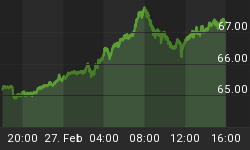From trade tariffs to cryptocurrency, it’s the era of confusion, anti-clarification and contradiction, and now another regulatory quagmire is casting its shadow on the unsuspecting small business and a worried drug-testing sector.
As increasing numbers of businesses are said to be dropping drug-testing for weed under atmospheric changes, the drug-testing industry is coming down off its high, wondering what comes next.
For small businesses, it’s been a confusing time. Drug-testing is expensive, and spreading legalization of marijuana is making them think twice. Low unemployment is also playing a factor: After all, with so many people smoking weed and the available workforce getting smaller, drug-testing for weed might mean a labor shortage.
May employers are now dropping drug-testing for marijuana, quietly, according to Crain’s Detroit Business, because they need more workers and filling jobs is getting harder (for now, at least).
Part of the reason for dropping the testing is the increasing users who carry medical marijuana cards, but the overall sentiment is that we’re moving towards legalized recreational use.
Employers are feeling a bit shackled by drug-testing for marijuana these days, with media quoting one lawyer as saying clients were complaining that they “can’t staff the third shift and test for marijuana”.
And the laws are confusing, at best—and very dynamic, with recreational marijuana use legal in nine states plus Washington, D.C., and medical marijuana legal in 29 states. Related: Dow Jones Jumps Despite Disappointing Jobs Report
“There is a lot of conflict there, and many employers, they just don’t know what to do,” Kathryn Russo, a lawyer at Melville, New York-based firm Jackson Lewis, told the Associated Press.
And the politics of weed is such that employers aren’t sure which way the wind is blowing, with Trump indicating a crackdown, but then in April promising Colorado that he wouldn’t target the state’s weed industry, after it legalized recreational use in 2014.
At this point, everyone’s just guessing what happens next, and the drug-testing industry could end up being the big loser.
According to Crain’s, there is no “definitive” data on how many companies conduct drug tests. The media outlet cited figures from the Society of Human Resources Management, which suggested that nearly 60 percent companies are doing testing. It’s also not clear how many companies have dropped marijuana from mandatory drug-testing, but indications from human resources managers, lawyers and recruitment agencies are that it’s being dropped at a fare pace.
Last year, the Mountain States Employers Council published a survey showing that of 609 Colorado employers, those drug-testing for marijuana fell to 66 percent, down from 77 percent the year before.
At the time, Council attorney Curtis Graves said the reason for this was low unemployment. “They may prefer a zero-tolerance approach. From a business perspective, they just can’t afford to be as choosy now,” Bloomberg quoted him as saying.
But he also predicted that there would be some weed-testing resumptions if the unemployment rate increased another 6-7 percent.
It’s hard to say yet what impact this will have on the drug-testing industry itself, and whether it will be able to adapt in a world where marijuana is dropped from the mandatory list, but leaders in this segment should be concerned.
By David Craggen for Safehaven.com
More Top Reads From Safehaven.com:
















